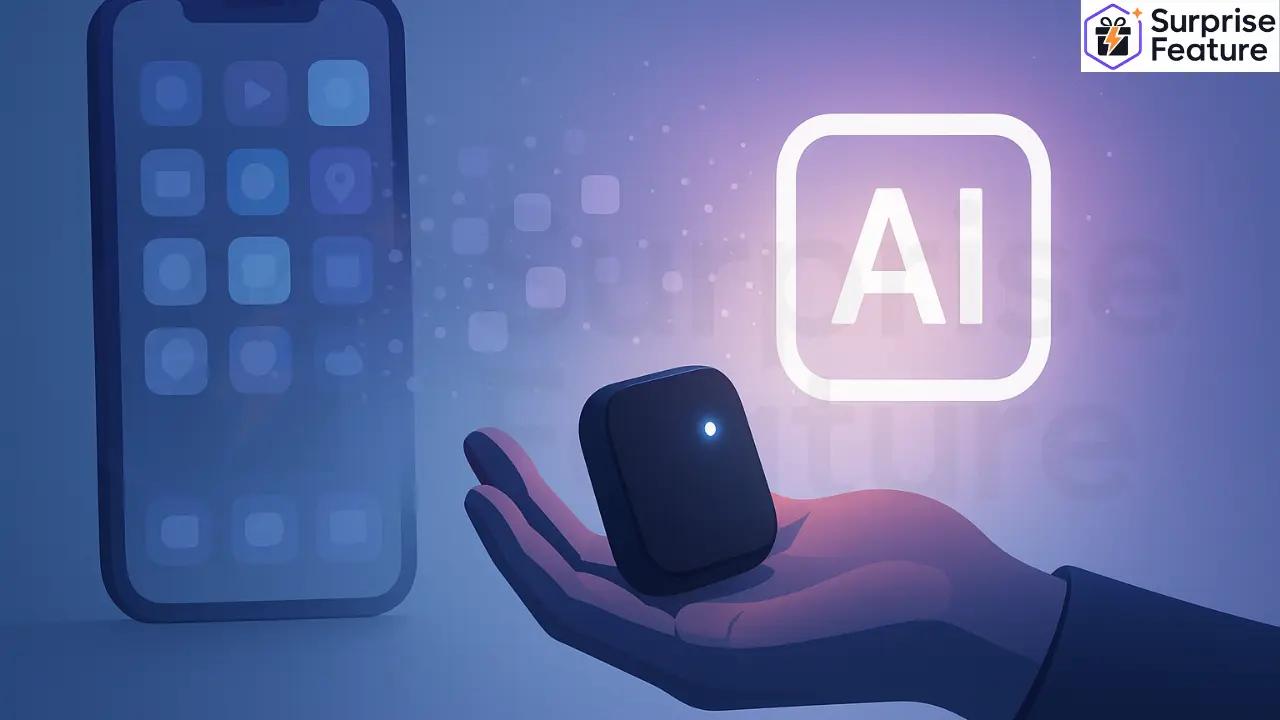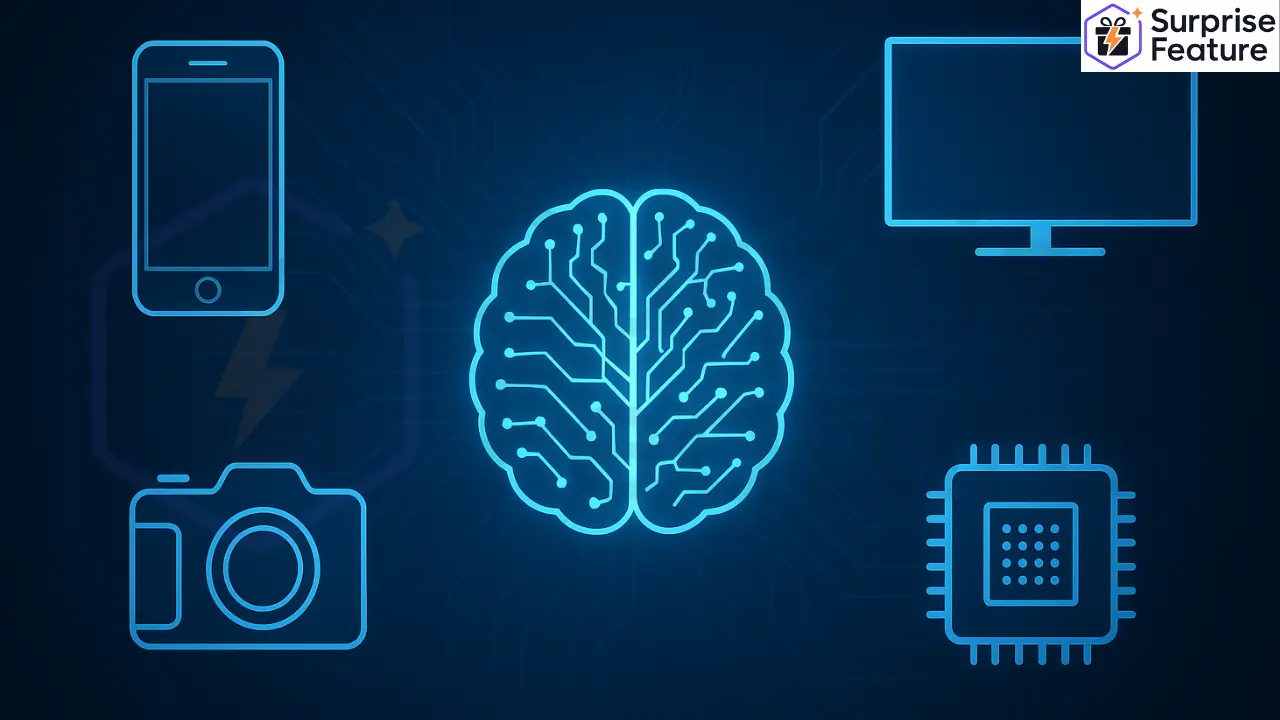Why AI-Powered Gadgets Will Soon Replace Half the Apps on Your Phone

For over a decade, apps have defined how we use our smartphones—social media for connections, maps for navigation, and countless niche tools for everything else. But a new wave of AI-powered gadgets is quietly rewriting that rulebook. Devices like the Humane AI Pin and Rabbit R1 are designed not to run hundreds of apps but to replace them entirely with intelligent, conversational AI. Experts now believe these gadgets may soon make nearly half of your mobile apps obsolete.
The Rise of AI-First Gadgets
Over the past two years, two devices have dominated conversations in the AI gadget world: the Humane AI Pin and the Rabbit R1. Unlike smartphones, these devices don’t require opening individual apps to complete tasks. Instead, they use natural language processing and cloud-based AI models to understand commands, make decisions, and execute actions directly.
Humane AI Pin
The Humane AI Pin attaches to your clothing, projecting a display onto your hand and listening to your voice. It replaces core apps like translation, search, and personal reminders. Instead of opening Google Translate, for example, you can just ask the pin to translate speech in real time. No extra clicks, no cluttered screens.
Rabbit R1
The Rabbit R1, resembling a compact gadget with a playful design, uses what the company calls an “Large Action Model (LAM)”. Unlike traditional voice assistants, it doesn’t just answer questions—it executes commands. You can tell it to order groceries, book a ride, or send an email without ever opening an app.
Why Apps Are Becoming Less Relevant
Since the App Store launched in 2008, apps have been the lifeblood of mobile technology. But their limitations are becoming increasingly obvious in a world that demands speed, personalization, and seamless integration.
- App Overload: The average smartphone user has over 80 apps installed but actively uses fewer than 10 daily.
- Friction: Apps require updates, logins, and navigation through menus just to perform simple actions.
- Time Drain: Switching between apps consumes attention and slows productivity.
- Redundancy: Multiple apps often overlap in function (five note-taking apps, three ride-hailing apps, etc.).
AI gadgets are positioning themselves as streamlined alternatives—not a collection of apps, but a single intelligent layer that handles multiple needs instantly.
The Key Advantages of AI Gadgets Over Apps
1. Simplicity
Instead of downloading, managing, and learning dozens of apps, AI gadgets offer a single conversational interface. Ask, and it acts.
2. Personalization
AI gadgets learn your preferences over time. Instead of navigating a travel app to book a flight, an AI device already knows your preferred airlines, seating choice, and payment method.
3. Speed
No logins, pop-ups, or notifications. A simple command like “Book me a table for two at an Italian restaurant tonight” replaces a five-minute process across multiple apps.
4. Multitasking
AI gadgets can chain actions across what would normally be multiple apps: “Find me a hotel in Paris under $200, book it for next weekend, and add it to my calendar.”
5. Freedom From Screens
Perhaps the most radical shift—these gadgets challenge the idea that we need to constantly stare at a screen. Voice, gesture, and projection interfaces free us from “doomscrolling.”
Which Apps Are Most at Risk?
Not every app will vanish, but many categories are especially vulnerable to AI replacement.
- Utility Apps: Calculators, translators, weather apps, and reminders can be handled faster by AI.
- Booking & Service Apps: Travel apps, ride-hailing, food delivery, and event booking are prime targets.
- Productivity Tools: To-do lists, note-taking apps, and scheduling apps may fade as AI automates workflows.
- Search & Info Apps: From maps to Q&A platforms, AI can provide instant, tailored answers.
Entertainment apps like YouTube, Spotify, and TikTok are safer because they deliver unique content ecosystems—but even here, AI is beginning to create personalized playlists and generate video content without apps.
The Challenges Facing AI Gadgets
Despite the excitement, AI gadgets face serious challenges before they can replace half the apps on your phone.
- Privacy: Handing over personal data to cloud-based AI raises legitimate concerns.
- Reliability: What happens when the internet connection drops or servers lag?
- Adoption Curve: Users are accustomed to apps; changing habits is never easy.
- Cost: Devices like Humane AI Pin currently sell for $699, making them less accessible to the masses.
Big Tech’s Response
Apple, Google, and Samsung are not sitting idle. Apple’s rumored “SiriOS,” Google’s Gemini-powered Android integration, and Samsung’s AI features in Galaxy devices show that smartphone makers are integrating AI directly into their systems to avoid disruption by standalone gadgets.
This means the future may not be about abandoning phones altogether, but about blurring the line between AI gadgets and smartphones. Your next iPhone or Pixel may function more like a Rabbit R1 than today’s app-driven devices.
The Future of an App-Less World
Will apps disappear completely? Unlikely. But within the next five years, many experts believe that 40–50% of the apps we use today will become redundant. Instead of hundreds of icons, we may rely on a single AI-powered interface that understands and acts on our intent.
In this app-less world, our relationship with technology may finally shift from managing tools to simply stating goals and letting AI handle the rest.
Final Thoughts
From the outside, it may sound radical to imagine life without dozens of apps cluttering your phone. But history shows us that technology often replaces what once felt indispensable. Just as streaming killed DVDs and email replaced faxes, AI-powered gadgets are on the path to redefining mobile life.
As these devices evolve, the question isn’t whether they’ll replace apps—but how soon we’ll realize we don’t need them anymore.

